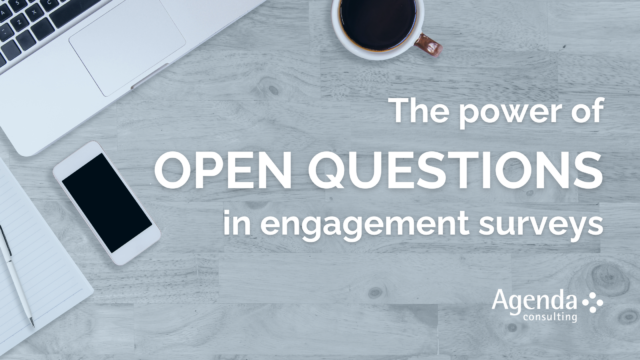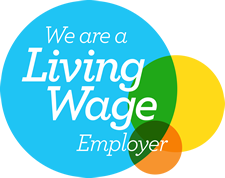
Insights
Helping not-for-profit organisations develop and sustain
the highest levels of employee and volunteer engagement

Insights

We believe that open questions are powerful for gathering meaningful feedback from your people. They help you to get to the bottom of issues, understand your survey results in more depth, and give your respondents space to provide feedback freely and confidentially.
Why should you include open questions in your engagement surveys?
What are people actually saying?
How does this impact your engagement survey design?
Open questions can’t be answered with a yes or no. They encourage survey respondents to provide as much or as little feedback as they’d like and are generally broad in topic.
Open questions are used in engagement surveys to gather detailed feedback from employees and volunteers about their experience their role in your organisation.
When faced with a big empty box and the freedom to type as much as they like, we find people often have a lot to share. Some respondents write very succinctly, others write essays! It’s an opportunity for them to share feedback in their own words.
Open questions provide the opportunity for your people to express their feedback in their own words. They present an opportunity to raise things that may not have been covered in the rest of your survey questions and expand on responses given to other questions.

Whilst quantitative analysis of closed questions, such as 5-point Likert questions, can reveal that there are issues in your organisation, analysis of open-text questions may offer further insight as to what the issues actually are and how your people experience those issues.
For instance, your survey results might reveal Career progression as an area to address, but open comments can show you that what people actually want to change is:
When using your engagement survey results as evidence to drive change in your organisation, sharing full written responses with senior decision makers can bring to life the issue at hand and need for change. For example, reporting that Career progression is an area to address is one thing, but showing the following quote could be a powerful way of demonstrating the impact:
“Often if you are good at your job you will be penalised by being kept in position as it’s more useful to the organisation that way, rather than prioritising the employee’s development.”
When presenting open question results we advise using the actual quotes – share what people are actually saying. How your people feel, expressed in their own words, is a powerful source of evidence.
When analysing the open question responses from UK Third Sector engagement surveys over the last year, we found that Colleagues and factors relating to Role were coming through in the answers to the “best thing” question whilst Reward and Communication are areas that employees would like to change.
Interestingly, Work Life Balance is coming through as something that people are wanting to change but also feeling good about. In both cases, this is focused on flexibility in terms of working hours and hybrid working arrangements.
It’s likely, if you’ve been doing engagement surveys for a while, that you’ve included some open questions in your survey design before. Great!
Our advice is to keep it simple, and to not ask too many open questions. Not only will it take your people longer to complete the survey, but it’ll take you longer to analyse the responses. We’d suggest keeping to 2-3 open questions in your full engagement surveys, and just the 1 open question in your pulse surveys.
You’ll want to keep your survey questions as consistent as possible to track progress over time. But keep in mind that things change, and you’ll have emerging priorities each time you run your survey, so don’t be too rigid with using the same questions every single time and consider using topical questions based on your priorities.
Use open questions in engagement surveys to your advantage and gather in-depth feedback on your priority areas.
Have questions about designing your next employee or volunteer survey? We’d love to hear from you – get in touch.
Author
Camilla Clarke, Business Development Manager
5 Linford Forum
Rockingham Drive
Milton Keynes
MK14 6LY
UK
Company No: 4509427
